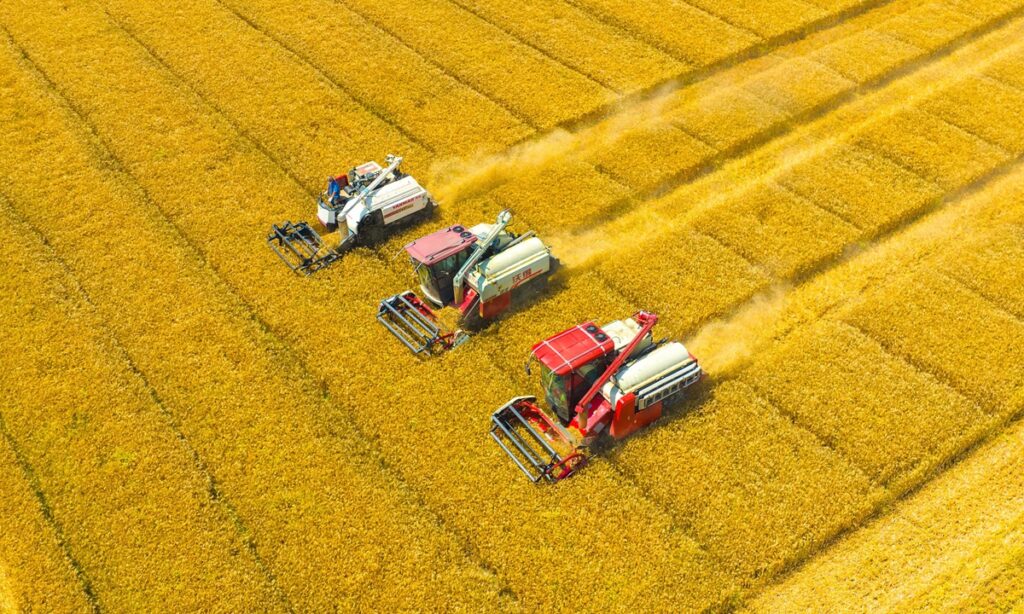China has witnessed another bumper summer grain harvest this year, the country’s National Bureau of Statistics (NBS) reported on Saturday, despite adverse weather effect in some parts of the country hurting per-unit output.
Summer grain output totaled 146.13 million tons this year, down 0.9 percent or 1.27 million tons from a year ago, data from the NBS showed. The output of this summer grain has stabilized and decreased slightly, and is still at a relatively high level, achieving a bumper harvest, said Wang Guirong, director of the bureau’s rural division.
Summer grain yield per hectare went down 1.2 percent to 5,491.8 kilograms. Wheat, a major grain, saw harvest decline by 1.3 percent year-on-year in terms of harvest per hectare.
A decline in per-unit output was mainly due to adverse weather in parts of the country including Central China’s Henan Province, Wang said.
Since the start of this year’s sowing period, agriculture conditions have been beneficial to grain growth through until late May when wheat-growing areas in central and northern China suffered from extended rainfall, resulting in insufficient light during the grain filling period, ultimately impacting on the harvest.
In addition, the drought in southwestern part of China including Yunnan Province and Guizhou Province led to lower yields, according to the official.
Sowing areas for the summer grain came in at 26.609 million hectares, up 0.3 percent on a yearly basis, the NBS data showed.
Wang attributed the increase of sowing areas to national supportive policies, favorable agricultural conditions and optimization of the planting structure.
In Northwest China’s Xinjiang Uygur Autonomous Region, for example, planting areas rose 4.6 percent year-on-year to 1.2 million hectares for the summer gain thanks to the optimization of the water resources.
“As the first season of annual grain production, the bumper harvest of summer grain has laid a solid foundation for stabilizing full year’s grain output, and provided strong support for promoting a sustained economic recovery,” Wang said.
Traditionally, the summer harvest spans from May to late June, with grain output in the period accounting for about a quarter of the annual total.
China’s policymakers have been driving the food security push as the country’s huge population, rising level of urbanization and pollution are eroding the country’s arable land.
Last month, Chinese lawmakers started deliberating a draft food security law to enhance China’s capacity for forestalling and fending off food security risks. The draft of the Food Safety Law was submitted for review at the 3rd session of the 14th National People’s Congress Standing Committee.
It is also the first time that this draft has been submitted for review at a meeting of the National People’s Congress Standing Committee.
The meeting of the Standing Committee emphasized that the current situation of food security in the country is favorable, with consecutive years of abundant harvests, sufficient grain reserves, and ample market supply.
In 2022, China reported its highest-ever annual grain output, achieving an increase of 0.5 percent to 686.5 million tons.
(Global Times)




